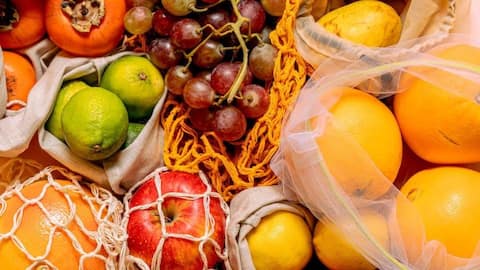Fruit faux pas: Unmasking some harmful fruit combinations
What's the story
Nature offers a rainbow of juicy fruits for us to savor, but not all fruits pair seamlessly together. While some fruit combinations sing in harmony on your palate, others can lead to an unpleasant digestive cacophony. So, before you whip up that tropical smoothie or toss together a fruit salad, delve into the world of forbidden fruit pairings to avoid potential tummy troubles.
Citrus and non-citrus
Acidic antagonists
Citrus fruits like grapefruit, oranges, and lemons love to play solo. When combined with sweet fruits like apples and bananas, the enzymes required to break down acidic fruits interfere with those needed to break down sweet fruits, causing digestive distress like bloating and indigestion. Additionally, the natural sugars in sweet fruits can ferment when combined with acidic fruits disrupting gut health and digestion.
Melons
Solo vibes only for melons
Melons, such as watermelon, cantaloupe, and honeydew, have a high water content and digest quickly. When consumed with slower-digesting fruits like bananas, which require more time for digestion, the melons may spend too much time in the stomach, leading to fermentation and discomfort. It is advisable to consume melons separately from other fruits to promote optimal digestion.
Starchy and acidic
Mixing high-starch and acidic fruits
Pairing fruits high in starch, such as bananas and green jackfruit, with acidic fruits like oranges can be quite harmful as starches require an alkaline environment for digestion, while citrusy fruits require an acidic one. Starchy fruits contain higher levels of complex carbohydrates, which conflict with the citric acid found in acidic fruits. This conflict can disturb digestion.
Sugary fruits
Sugar saboteurs
Fruits like dates, raisins, and mangoes are naturally high in sugar. Pairing them with other sugary fruits like grapes or bananas can overload the system, leading to a sugar crash causing potential digestive distress and blood sugar spikes. Individuals with diabetes or those aiming to manage their blood sugar levels should be mindful of such combinations.
Dried and fresh fruits
Dried fruits with fresh fruits
Dried fruits like raisins, dates, dried figs or prunes, are concentrated sources of natural sugars and fiber. When combined with fresh fruits, especially those with a high water content, the dried fruits may absorb water from the fresh fruits, causing digestive issues. Consuming dried fruits separately or with nuts can be a better option to avoid digestive discomfort
